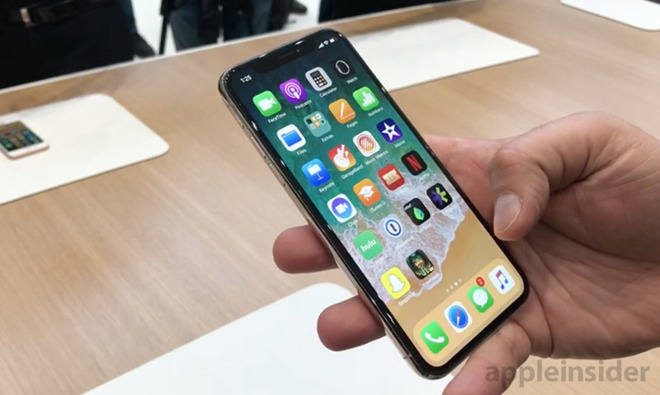Apple is now $7 billion behind in patent royalty payments to Qualcomm after directing contract manufacturers to withhold further remittance on grounds that the chipmaker participates in unfair licensing practices, according to testimony presented in court Friday.
Qualcomm commented on Apple's unpaid royalties in a court hearing in California, reports Reuters.
Apple does not directly license Qualcomm patents, though money from the tech giant does end up in the chipmaker's coffers through reimbursements made to partner manufacturers that do pay royalties.
The $7 billion figure, and a number of other major details surrounding the sprawling legal battle, are in dispute. Apple for its part argues Qualcomm's royalty rates are unfair and amount to price gouging and extortion.
Last year, Apple filed suit against Qualcomm, claiming the chipmaker participates in monopolistic practices and other nefarious business strategies including withholding nearly $1 billion in rebates as retribution for participating in a South Korean antitrust investigation. The initial case ultimately spawned some 100 separate suits and countersuits around the world.
As it applies to royalties, Apple alleges Qualcomm flouts FRAND (fair, reasonable and nondiscriminatory) patent commitments to charge customers, including suppliers, exorbitant rates on standard-essential patents. The chipmaker further restricts sales to buyers who agree to license its SEPs, a practice Apple refers to as "double-dipping."
When Apple halted royalty payments, so too did partner suppliers using Qualcomm IP.
During today's proceedings, Qualcomm also attempted to forward a motion to render moot Apple's patent validity challenges, reports Bloomberg. The company filed the motion earlier this month and presented its case in court on Friday.
At issue are nine Qualcomm patents "handpicked" by Apple to illustrate weak spots in the chipmaker's portfolio of mobile technology IP. Apple is attempting to invalidate the inventions that Qualcomm asserts is essential to current mobile standards. Qualcomm is attempting to avoid scrutiny of the patents by saying it has no plans to leverage them in infringement assertions against Apple and its contract manufacturers.
Apple in its own filing opposed the request, saying Qualcomm is attempting to deflect allegations of double-dipping. Specifically, Apple argues that Qualcomm should not be able to demand a license on patented technology if that same technology is built into its baseband chips sold to smartphone makers.
In addition to the California court action, Qualcomm lodged a complaint with the U.S. International Trade Commission that seeks to halt the import of iPhones powered by Intel modems.
For its part, Qualcomm on multiple occasions has said the legal battle comes down to favorable IP pricing, and that it expects the fight to end in a settlement.
 Mikey Campbell
Mikey Campbell







-m.jpg)






 Charles Martin
Charles Martin
 Christine McKee
Christine McKee
 Wesley Hilliard
Wesley Hilliard
 Malcolm Owen
Malcolm Owen
 Andrew Orr
Andrew Orr
 William Gallagher
William Gallagher
 Sponsored Content
Sponsored Content








22 Comments
After this chip incident, Bloomberg should not be looked at as a reliable source.
I haven’t looked at Bloomberg as a reliable source for years.
I would expect Apple has the cash set aside as a risk management strategy just in case the court case is unsuccessful.
That’s a lot of royalties, and suggests that Apple had been paying a lot back when they actually were putting Qualcomm modems in all new models. Unless Qualcomm is attempting to charge even for intel-equipped iPhones. $7 billion, no matter how you cut it, shows how pricing based on the total cost of the phone is a bit heavy handed.
I wonder how much money has already gone to the lawyers regarding this issue, just out of curiosity. I mean if you really want to settle is it necessary to fire up > 100 law suits? Also, I’m curious whether it’s “all green” on the Android side of things and the corresponding OEMs and suppliers happily pay what Qualcomm is asking for? Or are they paying less?
I'm really, really not a fan of Qualcomm. I thought they were a real innovative company advancing the industry forward for a while. Now when I hear them extorting money from their customers in this manner, it's highly disturbing. I hope they lose every case they have, not only against Apple, but through others too. I just hope Intel and others can step up their game and compete on equal footing.